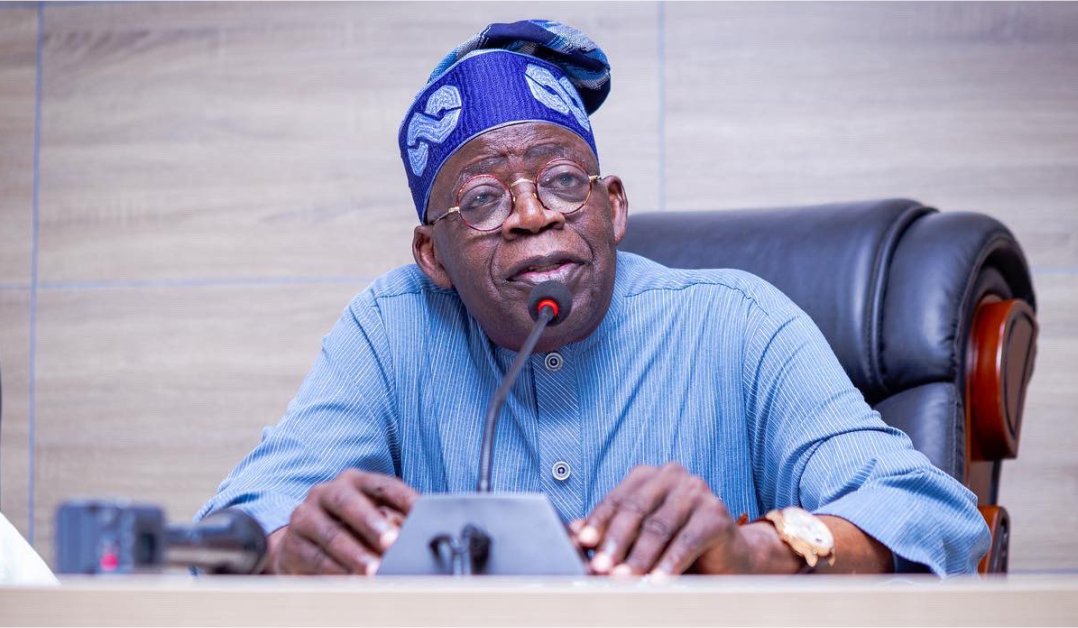
BREAKING: President Tinubu Declares National Emergency on Food Security, Calls for Urgent Overhaul of Irrigation and Water Systems

In a bold and urgent move that signals the gravity of the nation’s growing agricultural and economic crisis, President Bola Ahmed Tinubu has declared a National Emergency on Food Security. The declaration, which came on Tuesday during a high-level address in Abuja, marks one of the most significant policy shifts in recent years and underscores the administration’s increasing concern over Nigeria’s deteriorating food supply chain, rising inflation, and widespread hunger.
President Tinubu, visibly stern and impassioned, did not mince words as he laid out the country’s dire situation. “We are facing a food crisis of unprecedented proportions. The time for bureaucratic sluggishness is over. Nigeria must feed herself. We cannot continue to depend on imports while our fertile lands lie fallow and our rivers dry up from neglect,” he said. “Today, I declare a national emergency on food security.”
With this declaration, Tinubu is calling for immediate and far-reaching action on irrigation infrastructure and participatory water resource management across the federation. In a country where agriculture still forms the backbone of the economy—employing more than 60 percent of the population—yet remains dangerously vulnerable to climate change, insecurity, and mismanagement, this proclamation is both timely and necessary.
Nigeria has seen food prices skyrocket over the past year, driven by a perfect storm of factors: erratic rainfall patterns, desertification in the north, floods in the middle belt, persistent insecurity in farming regions, and rising fuel and transportation costs. Staple foods like rice, garri, maize, and tomatoes have become luxuries for many families, with reports of children going to school hungry and parents skipping meals just to survive. The situation has been worsened by the devaluation of the naira and disruptions in global supply chains, putting the country’s most vulnerable populations at grave risk.
With the declaration, President Tinubu is directing all relevant ministries, state governors, and agricultural stakeholders to immediately prioritize irrigation systems across the country—particularly in arid regions that have long struggled with seasonal rainfall. The plan includes constructing new dams, repairing broken canals, modernizing water storage facilities, and expanding drip irrigation systems that maximize water efficiency. “Water is life—and in agriculture, water is food. If we do not manage our water resources efficiently, we are planting hunger,” the president emphasized.
But this isn’t just about hardware. Tinubu’s directive also includes a firm push toward participatory water resource management—a model that calls for the inclusion of local communities, farmers, herders, and private stakeholders in water governance. “We must return power to the people—those who till the land and know the soil better than anyone else. We must involve them in every decision we make, or we risk building castles on sand,” he added.
The president’s declaration comes after months of mounting pressure from agricultural unions, food rights activists, and international development agencies who have repeatedly warned about Nigeria’s vulnerability to food insecurity. Just last month, the Food and Agriculture Organization (FAO) of the United Nations reported that over 26 million Nigerians are at risk of acute hunger if immediate interventions are not taken. Tinubu’s administration appears to be responding with the urgency the crisis demands.
Several state governors have already reacted to the announcement. In Kano, Governor Abba Kabir Yusuf commended the president’s move, calling it “a lifeline for northern farmers who have been battered by dry spells and banditry.” In Benue, Governor Hyacinth Alia said the state government would begin an immediate assessment of existing water infrastructure, with a view to scaling up irrigation before the next planting season. “This is not a northern or southern issue—this is a national emergency,” he said.
The presidency has also hinted that part of the funding for this sweeping initiative will come from the reallocation of resources from non-essential federal projects and from international partnerships already being negotiated with the African Development Bank, the World Bank, and the Islamic Development Bank. “We are mobilizing every available dollar to fight hunger. There is no dignity in a hungry nation. We must rise up to this challenge,” Tinubu declared.
Still, the road ahead is anything but easy. Experts caution that without concrete timelines, transparency mechanisms, and strong political will at every level of government, the emergency declaration could become just another headline in the archive of unfulfilled promises. Nigeria’s irrigation infrastructure has been plagued by decades of underinvestment and corruption, with many dams either unfinished or functioning far below capacity. Water management bodies across states are often poorly funded, understaffed, and lack the technical expertise to implement large-scale projects.
In response to these concerns, President Tinubu assured the nation that a special task force on food security will be inaugurated within the next 10 days, comprising experts from the ministries of agriculture, water resources, environment, and national planning. He also pledged to personally oversee the progress and warned that any official who delays or mismanages the process “will face the full wrath of the law.”
“We are no longer in the season of rhetoric. This is execution time,” he said, drawing a loud round of applause from attendees.
The declaration marks a defining moment in Tinubu’s presidency. For many Nigerians, it is a moment of hope—an acknowledgment that their hunger is finally being recognized as a national crisis. For others, especially critics of the government’s handling of the economy thus far, it is a moment of cautious optimism. Only time will tell if the president’s bold words will translate into the kind of structural transformation Nigeria’s agricultural sector so desperately needs.
As the country watches and waits, one thing is certain: food security is now on the front burner of Nigeria’s national agenda, and with the president’s declaration, there is no turning back. The seeds have been planted—what remains to be seen is whether they will be nurtured with action or left to wither in the scorching heat of political promises.


